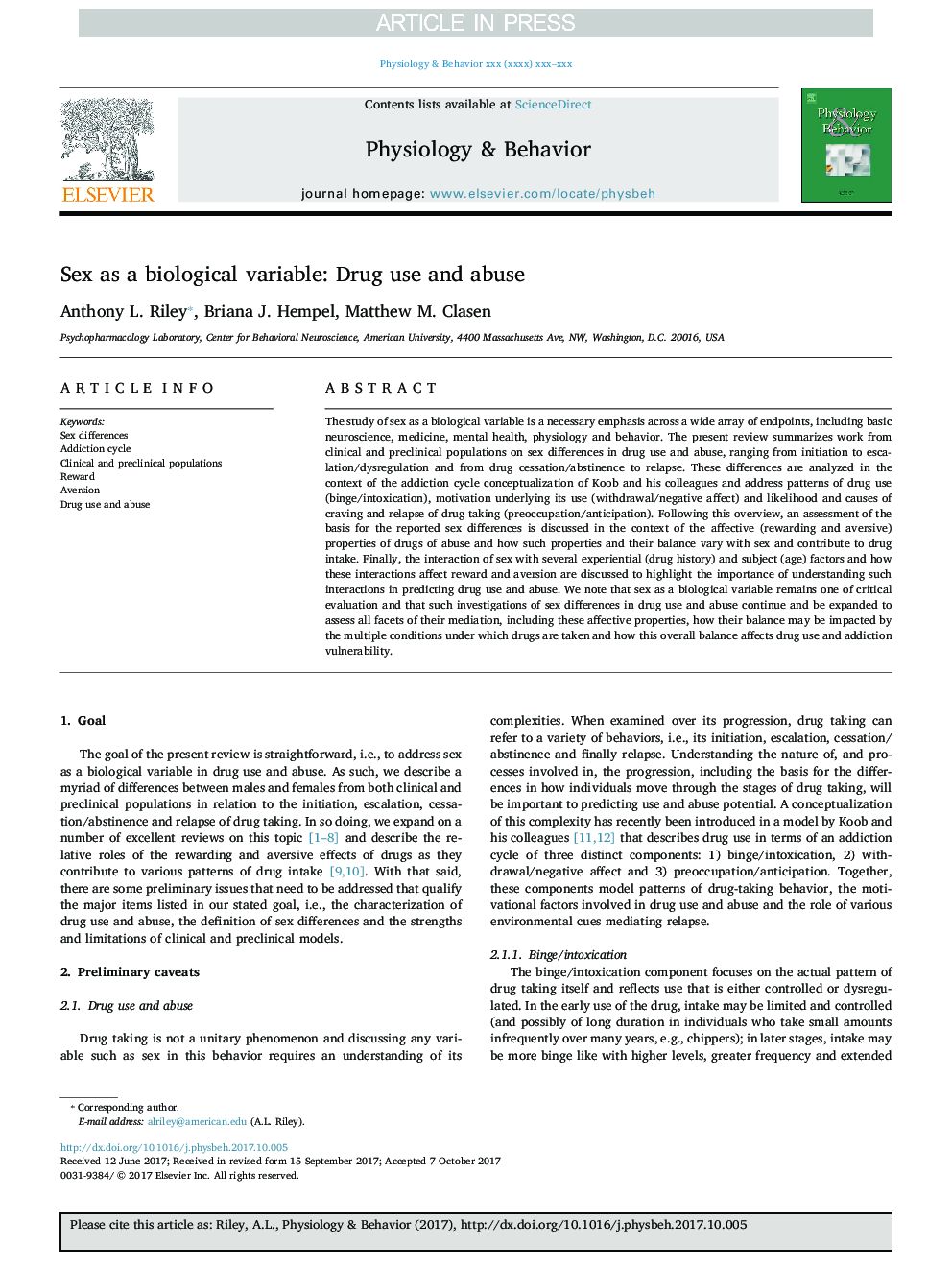| Article ID | Journal | Published Year | Pages | File Type |
|---|---|---|---|---|
| 8650627 | Physiology & Behavior | 2018 | 18 Pages |
Abstract
The study of sex as a biological variable is a necessary emphasis across a wide array of endpoints, including basic neuroscience, medicine, mental health, physiology and behavior. The present review summarizes work from clinical and preclinical populations on sex differences in drug use and abuse, ranging from initiation to escalation/dysregulation and from drug cessation/abstinence to relapse. These differences are analyzed in the context of the addiction cycle conceptualization of Koob and his colleagues and address patterns of drug use (binge/intoxication), motivation underlying its use (withdrawal/negative affect) and likelihood and causes of craving and relapse of drug taking (preoccupation/anticipation). Following this overview, an assessment of the basis for the reported sex differences is discussed in the context of the affective (rewarding and aversive) properties of drugs of abuse and how such properties and their balance vary with sex and contribute to drug intake. Finally, the interaction of sex with several experiential (drug history) and subject (age) factors and how these interactions affect reward and aversion are discussed to highlight the importance of understanding such interactions in predicting drug use and abuse. We note that sex as a biological variable remains one of critical evaluation and that such investigations of sex differences in drug use and abuse continue and be expanded to assess all facets of their mediation, including these affective properties, how their balance may be impacted by the multiple conditions under which drugs are taken and how this overall balance affects drug use and addiction vulnerability.
Keywords
Related Topics
Life Sciences
Biochemistry, Genetics and Molecular Biology
Physiology
Authors
Anthony L. Riley, Briana J. Hempel, Matthew M. Clasen,
